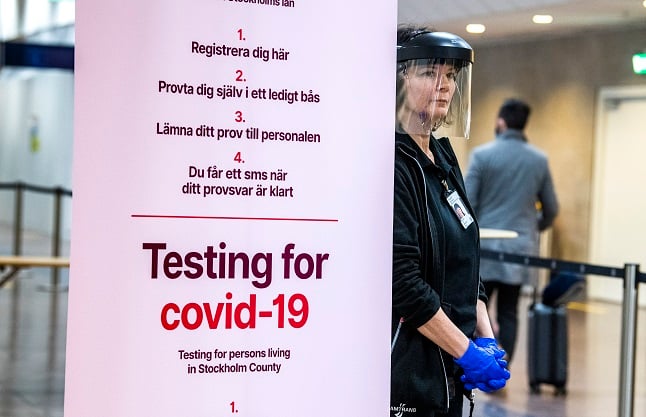Travellers who are not fully vaccinated and arrive from outside the Nordics (Denmark, Norway, Iceland and Finland) should avoid contact with others for one week after arriving (including, for example, not visiting shops, using public transport or having visitors to their home) and should take a test soon as possible after arriving.
This applies to both Swedish and foreign citizens, regardless of the reason for travel, although children under six and people who have received their second dose of a coronavirus vaccine at least two weeks before arrival in Sweden are exempt. However, even people who are fully vaccinated should get tested if they experience any symptoms of the virus – this applies regardless of whether they have recently been abroad.
A separate guideline for travellers from certain countries outside the EU to take a second test and isolate for one week on arrival was previously in place until August 31st, but has now been scrapped. This means that the same recommendations, to take one test on arrival and be “careful” about social contacts, now apply to all people who arrive in Sweden from outside the Nordic countries.
From September 1st, people who have tested positive for Covid-19 and recovered within the last six months are also exempt. The current guidelines are in place until at least October 31st.
“Several countries have a greater spread of infection than Sweden, and in contract tracing work we see that a relatively high proportion of Covid-19 cases are still linked to travel abroad,” the Public Health Agency’s deputy state epidemiologist Karin Tegmark Wisell said in a statement explaining why the testing recommendation had been extended.
Tests are free for people arriving in Sweden from overseas, and can be arranged by ordering one from 1177.se or using a drop-in centre. The 1177 website for your region (you can pick your region using the drop-down “välj region” menu at the top) should have more information, and Sweden’s larger airports also offer tests for some arriving passengers. The 1177 website for your region should also tell you how to book a test if you don’t normally live in Sweden and don’t have a Swedish personal ID number.
Unlike many countries but in line with Sweden’s strategy of using fewer legal restrictions, the recommendations to test and isolate are not legally enforced, but it is still not considered optional.
Even people who are exempt from taking the tests on arrival are still expected to be “careful” after travelling from overseas, according to the Public Health Agency. This includes paying close attention even to mild symptoms, keeping a distance from other people, and avoiding meeting people who belong to Covid-19 risk groups.



 Please whitelist us to continue reading.
Please whitelist us to continue reading.
Member comments